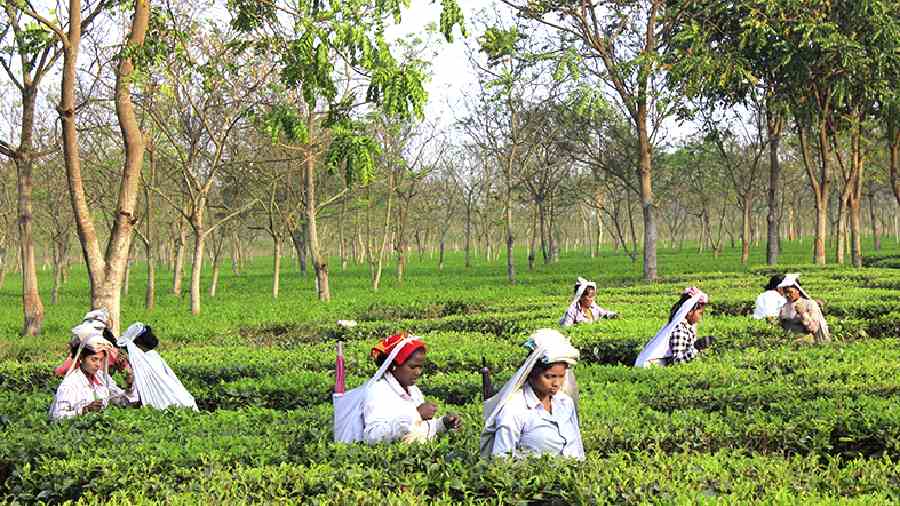Three Es — encroachment, elephant attack, and erosion — have emerged as prominent posers for the Terai tea industry, senior tea planters said here on Friday.
“In recent times, fallow land in many tea estates of Siliguri sub-division has been encroached by land grabbers. These people are also involved in illegal commercial dealings of such land and run organized rackets. It is getting difficult for the industry to put a stop to such activities. The administration should take stern steps in this regard,” said S.K. Gupta, chairman of the Terai Branch of Indian Tea Association (TBITA), on the sidelines of the 61st annual general meeting of the branch.
Some other representatives of the association said that the geographical location of Siliguri resulted in a steady demand for land in and around the city.
“The problem is prevalent across the sub-division and especially in tea estates on the outskirts of the city. These people are grabbing land, finding buyers ready to pay and helping the buyer settle on the land. The entire practice is completely illegal,” Rana Dey, the TBITA secretary, said.
The planters’ association also said that the state government should mull their request to amend the compensation law in case properties are damaged by elephant depredation.
According to them, there are 42 gardens in Terai, and elephant attacks are common in most. However, unlike normal villages, tea workers do not get any compensation if their quarters on estates are damaged as these are leasehold land. Compensation is paid only if a person is killed in such attacks.
“Tea companies have to bear additional expenditure in a regular manner to carry out repairs of such quarters and other infrastructure damaged by elephants,” said a planter.
At the meeting, Gupta, the branch chairman, also elaborated on the issue of erosion. He pointed out that a number of rivers and streams move through the tea estates, many of which, during the monsoon months swell and erode the plantations.
“These swollen streams cause extensive damage to internal roads, culverts and even homes. Many tea estates carry out protection works such as building embankments, which adds to their expenses. The state irrigation department, we believe, should step in, and take up necessary jobs to help the industry,” said Gupta.
The planters of the Terai, an area comprising the Siliguri subdivision and parts of Islampur subdivision of North Dinajpur district, also underscored that the Tea Board —the sector’s apex government agency — should take up initiatives with the industry stakeholders to increase the per capita consumption of tea in India.
The planters also pointed out that as of now, the per capita consumption of tea in India is 850 grams, which is lower than that of a number of other countries where the brew is marginally produced or not produced at all.
“Though marginally as of now, tea production has been increasing over the years. If the demand for tea in the domestic market does not go up, it would be tough to strike a balance.... The cost of tea production is on the rise,” a senior planter said.











